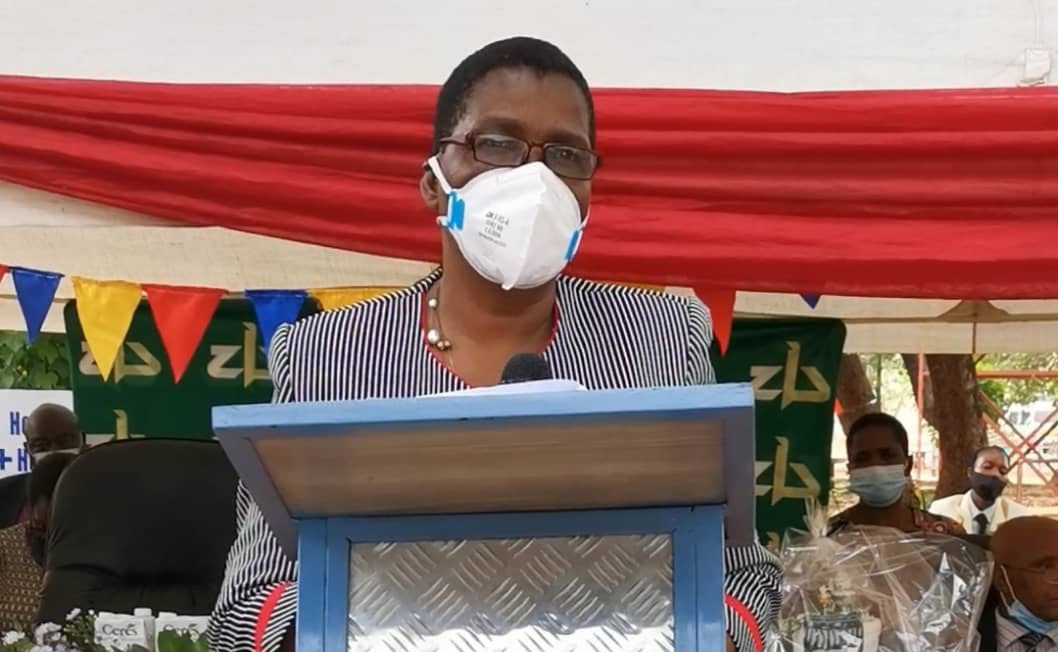BY NOKUTHABA DLAMINI
The government says the Continuous Assessment Learning Activities (CALA) framework will not be scrapped despite concerns by unions that its introduction did not take into consideration the impact of Covid-19 and lack of resources at schools.
Tumisang Thabela, the permanent secretary in the Primary and Secondary Education ministry, told VicFallsLive in an interview on the side-lines of the Secretary’s Merit Award ceremony at Victoria Falls’ Mosi-oa-Tunya Secondary School that resistance against CALA was natural since it was a new thing.
“We take it as normal as some changes attract opposition because one thing about human beings is that they are not comfortable leaving their comfort zones,” Thabela said.
She said teachers and learners must understand that the newly introduced curriculum was meant to equip learners with 21st century skills.
“It is those skills such as critical thinking, problem solving, communication and team building, leadership, technological advancement and enterprise as well as Unhu/Ubuntu (that inform the changes), “Thabela said.
“How do you teach leadership in an hour examination?
“So, all those theoretical things can’t really work for skills and competence for the 21st century and that’s why we said we have to come up with a different way of assessing learners as a means of planning.
“So, the new assessment framework for 2021 carries the 30 percent of the final examination mark.
“It is thus imperative for schools to implement (CALA) as a policy directive giving a fairer way of determining what a child can do or make in addition to what a child can remember.”
Thabela said the combination of a continuous assessment and a high stakes examination will determine learner achievement levels in the various learning areas.
Thabela said the CALA curriculum was a holistic assessment model that tracks a child’s potential.
“There are a number of children who have failed in their final exams because they lost a father or a mother, but at the summative, we don’t look at that, but the formative will then indicate the strengths of that child and we can then try and see how we can rescue that child,” she said.
Thabela said her ministry has moved from celebrating the aggregate figures as they only tested the memory to practical science and technology, e-learning, sport, arts and culture, welfare of learners, sustainable environment and school governance.
“In the past, you will all remember that our focus was on the academic performance, but after the inquiry into education and training that was set up by the then president (Robert Mugabe) in 1998, the 1999 recommendations said that the model was not fit for purpose,” she said.
“It had no values that actually underpinned it, it was largely theoretical, and when the children went to higher and tertiary education and the industry they didn’t have any skills that higher and tertiary education could use to develop them further, neither did they have enough skills that industry would actually use and this then led us to change to a more holistic curriculum that speaks to every educational curriculum needs and what it needs is that every child should be identified where they are gifted and there is no child who comes empty.”
Council run Mosi-oa-Tunya and Chamabondo Primary School were awarded the Secretary’s Merit Awards that they scooped in 2017 and 2018 after exhibiting all round excellence in fulfilling the ministry’s mandate of offering a highly competitive and relevant 21st century child centred education product.
The two schools were given a $1 300 000 cheque, mobile tables and certificates.

 Slider3 years ago
Slider3 years ago
 National4 years ago
National4 years ago
 Opinion3 years ago
Opinion3 years ago
 Tourism and Environment4 years ago
Tourism and Environment4 years ago
 National2 years ago
National2 years ago
 National3 years ago
National3 years ago
 National2 years ago
National2 years ago
 National4 years ago
National4 years ago




